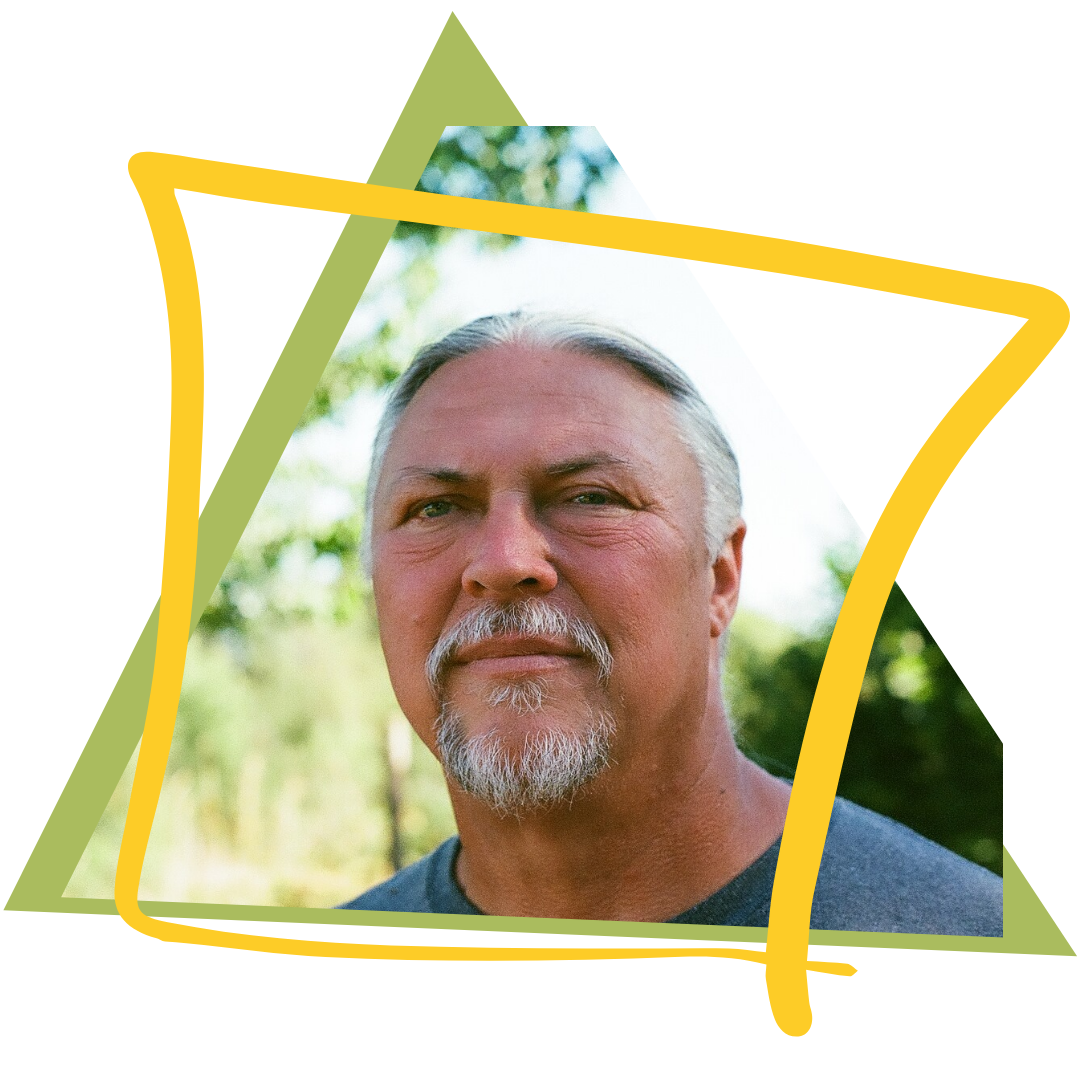“I Struggle with the Word Deserves”
Luke 7:1-5
We grow apples here.
They are not famed like
the olive or the fig,
but they do existThe universal law of apples
applies to them,
as everywhere:
one bad apple.I’ve been told
there are good ones
among the batch of golden-colored
with the brush of red across the top.We call them centurion.
But how good can they be
if the whole tree is rotten
at the root?I struggle with the word deserves,
as if decent behavior
inside a corrupt system
has earned a gold star.
A poem from God Speaks Through Wombs: Poems on God’s Unexpected Coming. By Drew Jackson (2021)
Episode Reflection
Invitation to Explore
Take a moment to read Luke 7:1–10. What do you notice about Jesus in this passage? What do you notice about the centurion and others in this passage?
Now read Drew Jackson’s poem, “I Struggle with the Word Deserves” (see above). What new meaning does reading the poem give to Luke 7:1-10? What does the poem help you notice about the passage?
Drew Jackson reminds us that “faith is always asking to put flesh on.” He says, “if we believe in a God that became incarnate, then to follow Jesus is to consistently be asking ourselves the question, how does our profession of faith start to put on flesh in our neighborhood.”
Thinking about your reflections on Luke 7 and Drew’s poem, what do you notice about how you could put “flesh” on your faith? How does your faith intersect your neighborhood, workplace, family, or other community?
Scripture to Study
When Jesus had finished saying all this to the people who were listening, he entered Capernaum. There a centurion’s servant, whom his master valued highly, was sick and about to die. The centurion heard of Jesus and sent some elders of the Jews to him, asking him to come and heal his servant. When they came to Jesus, they pleaded earnestly with him, “This man deserves to have you do this, because he loves our nation and has built our synagogue.” So Jesus went with them.
He was not far from the house when the centurion sent friends to say to him: “Lord, don’t trouble yourself, for I do not deserve to have you come under my roof. That is why I did not even consider myself worthy to come to you. But say the word, and my servant will be healed. For I myself am a man under authority, with soldiers under me. I tell this one, ‘Go,’ and he goes; and that one, ‘Come,’ and he comes. I say to my servant, ‘Do this,’ and he does it.”
When Jesus heard this, he was amazed at him, and turning to the crowd following him, he said, “I tell you, I have not found such great faith even in Israel.” Then the men who had been sent returned to the house and found the servant well.
Luke 7:1–10 (NIV)
Wise Words to Consider
“… writing poetry made me pay attention to what’s going on in my interior landscape, what’s happening underneath the surface of my own life. And what’s going on around me. The poet Mary Oliver says in one of her poems, ‘I don’t know what prayer is, but I know how to pay attention.’ Just the connection between paying attention and prayer is right there, it’s so close. I’ve found that in the act of learning to pay attention and then to begin to put the words to whatever that was happening, I was meeting God. God was meeting me in those spaces.”
-Drew Jackson
A Prayer to Lead You
Lord, we have so many questions, so many longings, so many places where we see hurt and brokenness. Help us to sit in our unknowing and live more deeply into our questions. We don’t want to be like the false prophets who declare that there is peace where there is no peace. Help to pay attention to what is really going on inside of us and really going on around us. Truth-telling to ourselves and to others is the beginning of healing. Make us into healers in our communities. Work through us to bring shalom and human flourishing to our relationships. Amen.
A Practice to Begin
When we are in a space of waiting with unanswered questions, Drew invites us to engage in the spiritual practice of paying attention. Meditate about a longing, unfulfilled desire, or question you have. Pay attention to what comes up for you emotionally or in your body as you dwell on that unanswered place. How can you dig deeper into that question? As you dig deeper what else do you notice in yourself? What does your unanswered question tell you about who God is? Do you sense a deeper invitation?
As you go throughout your day, attempt to continue to “pay attention” to what is going on inside of you when you encounter difficult things. An example could be a conflict at home, an email at work that causes anxiety, a difficult conversation you know is coming. As you “pay attention” to your body and your emotions, what patterns do you notice? Do you sense a deeper invitation from God?
Questions to Answer
Drew Jackson reminds us that we can’t be like the false prophets who declare peace where there is no peace. We must do the work of shalom. Drew reminds us:
To do the work of shalom, we have to do the work of healing.
To do the work of healing, we have to do the work of truth-telling.
To do the work of truth-telling, we have to do the work of lament.
This is a difficult journey for most people to embark on. Where do you get lost in this process? Do you struggle with truth-telling, declaring peace where there is no peace? Do you struggle with lament? Which area of this process would be good for you to focus on as we work in community to contribute to shalom and human flourishing?
Resources to Help
Book: God Speaks Through Wombs: Poems on God’s Unexpected Coming by Drew Jackson
Video: Being Present to the Presence of God: Solitude as a Practice to Distinguish the Voice of God by Drew Jackson (9 minutes)




